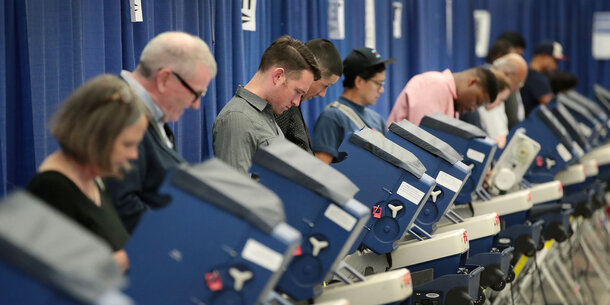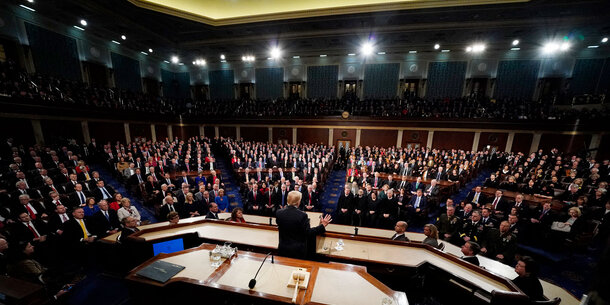Last week, I traveled to Philadelphia to watch President Biden give a passionate defense of voting rights at the National Constitution Center.
He started off reminding Americans that the November election was an extraordinary achievement. Despite the pandemic, it had the highest voter turnout since 1900. The president also lauded the election officials who made it happen while withstanding “unrelenting political attacks, physical threats, intimidation, and pressure.”
But it didn’t take long before Biden’s speech took on a more ominous tone. He told of the Big Lie about a stolen election that continues to poison our politics. He made good use of Brennan Center research describing the ongoing assault on our democracy, noting how 17 states have enacted nearly 30 laws to make it harder to vote. And that legislators across the country, overwhelmingly Republican, have introduced nearly 400 bills to restrict the vote.
The president stressed that this legislative push isn’t just about making it more difficult to cast a ballot. It’s also about determining who gets to count the votes. Instead of independent election administrators, Republicans across the country are pushing state legislation that will give this sacred responsibility to partisan legislatures and other untrustworthy actors.
Biden also noted that we can’t rely on the Supreme Court to protect voting rights either. If it wasn’t clear before, it became painfully obvious in Brnovich v. Democratic National Committee. The case involved Section 2 of the Voting Rights Act, under which people could challenge voting laws and practices that produced discriminatory results regardless of whether that was the intent.
But after the conservative majority’s ruling, courts might look past voting laws and practices that impose disparate burdens on voters of color so long as the state provides other ways to vote. For instance, if state legislators eliminate early voting on Sundays, a day Black churches drive their worshippers to the polls, they may be able to escape liability if voters have other options for casting their ballots. As Justice Elena Kagan noted in her dissent, such “inconveniences” can add up to vote suppression.
As my colleague Sean Morales-Doyle told Congress on Friday, this will undermine free and fair elections.
“The reality is that state legislatures are not hacking, but slicing away at voting rights from every angle,” he testified. “They shave away access to mail voting, they cut back on in-person voting, they trim voters from the rolls through faulty purges. While any one slice might appear minor, the end result is death by a thousand cuts.”
Both Biden and Morales-Doyle identified the legislative solutions to the threats we face. By passing the For the People Act, Congress would override many of the restrictive state laws. By passing the John Lewis Voting Rights Advancement Act, Congress can reactivate the powerful preclearance provisions of the Voting Rights Act of 1965. And in light of Brnovich, Congress must also strengthen Section 2 in order to fully restore the Voting Rights Act to its former glory.
“Make no mistake — bullies and merchants of fear and peddlers of lies are threatening the very foundation of our country,” Biden said near the end of his speech. Now is the time for concerted legislative action led by the White House. Without the For the People Act and the John Lewis Voting Rights Advancement Act, millions of voters across America — many of them people of color — are vulnerable to having their voices silenced.



